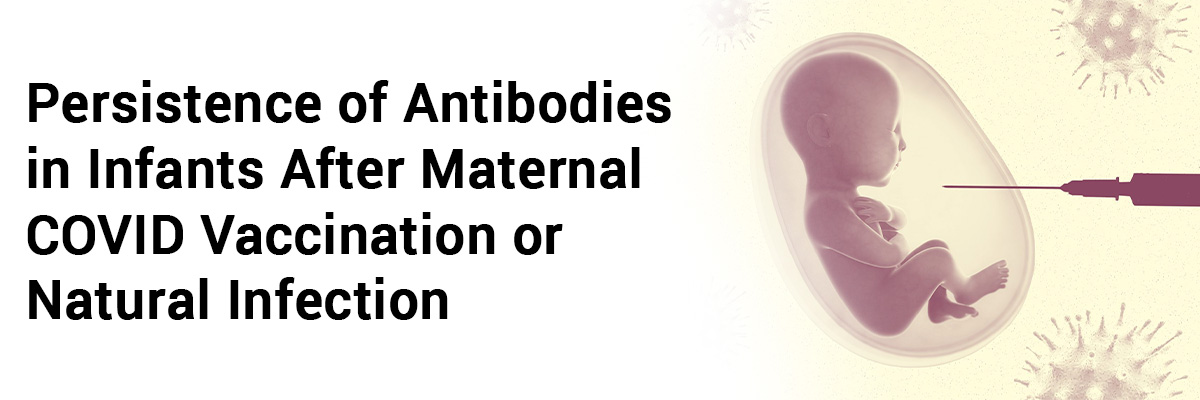
 IJCP Editorial Team
IJCP Editorial Team
Persistence of Antibodies in Infants after Maternal COVID Vaccination or Natural Infection
A recent study evaluated the persistence of maternal anti-S IgG, induced by a COVID-19 vaccine, in infant blood, and compared the persistence of infant anti-S IgG following the mother’s vaccination with natural infection.
Women who had received an mRNA COVID-19 vaccine in pregnancy or were infected with COVID at 20 to 32 weeks’ gestation, had enrolled in a prospective study at 2 academic medical centers in Boston, and had enrolled their infants in this follow-up study, were included. Individuals infected before vaccination were excluded from the study. Investigators obtained matched maternal and umbilical cord serum samples at birth. Infant capillary serum samples were obtained 2 months following birth for infants of vaccinated mothers and after 6 months for infants of mothers who were vaccinated and mothers who had been infected with COVID-19.
Antibody titers against the virus spike protein were assessed. The study included 77 vaccinated pregnant women and 12 with symptomatic COVID-19 infection in pregnancy. At 2 months, capillary serum samples were obtained from 49 infants of vaccinated mothers, and at 6 months, the samples were obtained from 28 infants of vaccinated mothers and 12 infants of infected mothers.
Findings from the study:
- The titers were significantly higher among vaccinated mothers at delivery with a mean (SD) of 2.03 (0.47) optical density (OD450-570), in comparison with mothers after infection [mean (SD) of 0.65 (0.76) OD450-570] (P < .001).
- The mean (SD) cord titers were higher following vaccination compared to natural infection at 2.17 (0.50) OD450-570 and 1.00 (0.83) OD450-570, respectively (P < .001).
- At 2 months, 98% of infants of vaccinated mothers were found to have detectable anti-S IgG.
- The mean (SD) titer at 2 months was 1.29 (0.53) OD450-570, and correlated with both maternal and cord titers at delivery.
- Vaccination was associated with significantly higher antibody persistence in infants compared to natural infection.
- At 6 months, 57% of infants of vaccinated mothers had detectable antibodies while only 8% of infants born to infected mothers had detectable levels (P = .005).
- The mean (SD) titer was 0.33 (0.46) OD450-570 among infants of vaccinated mothers and 0 (0.01) OD450-570 in infants of infected mothers (P = .004). Maternal (P = .23) or cord (P = .05) titers had no significant association with infant titers at 6 months.
It was shown that the majority of infants born to vaccinated mothers had persistence of anti-S antibodies at 6 months.
Source: Shook LL, Atyeo CG, Yonker LM, et al. Durability of Anti-Spike Antibodies in Infants After Maternal COVID-19 Vaccination or Natural Infection. JAMA. 2022 Feb 7.

IJCP Editorial Team
Comprising seasoned professionals and experts from the medical field, the IJCP editorial team is dedicated to delivering timely and accurate content and thriving to provide attention-grabbing information for the readers. What sets them apart are their diverse expertise, spanning academia, research, and clinical practice, and their dedication to upholding the highest standards of quality and integrity. With a wealth of experience and a commitment to excellence, the IJCP editorial team strives to provide valuable perspectives, the latest trends, and in-depth analyses across various medical domains, all in a way that keeps you interested and engaged.




















Please login to comment on this article